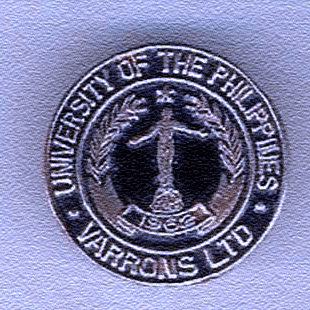Boycott no good
The following piece was the winning editorial written by Judith Uy-Sumatra (Monosomic ’76). In 1978-79, Judith was the Editor-in-Chief of UPLB Perspectives, the official student newspaper at the University of the Philippines Los Baños.
She graduated from the same university with a bachelor’s degree in agriculture. She also holds an MBA degree. She currently works as a Planning Officer at the Provincial Planning and Development Office (PPDO) in Tagbilaran City in the Philippines.
“To act without understanding is the behavior of the multitude.”
 This best describes the conduct of thousands of students, instructors, workers and researchers who joined the boycott last February. Begun by students with problems on dormitory, library and laboratory facilities, the boycott fanned this spark into a raging fire. But it did not last long. Enthusiasm of the students noticeably waned as the boycott plodded on to the last three days.
This best describes the conduct of thousands of students, instructors, workers and researchers who joined the boycott last February. Begun by students with problems on dormitory, library and laboratory facilities, the boycott fanned this spark into a raging fire. But it did not last long. Enthusiasm of the students noticeably waned as the boycott plodded on to the last three days.
Most of the students were caught in a web of contradiction between conformity with the mob and threat of low grades or the likes. Many students were alarmed to know that absences due t the boycott were unexcused, that classes were to go on and that make-up exams were not to be given. The threat seemed to win more than half of the students on its side. In effect, the students went back to classes bothered by a question: IS THE BOYCOTT JUSTIFIED?
The six day boycott started February 7, barely two weeks after the new chancellor assumed his position. Chancellor Emil Q. Javier faced the UPLB milieu at a time when student militancy was at its peak. To recapitulate, the boycott was preceded by two similar mass actions. Thus, Chancellor Javier was welcomed by students who were highly critical of the administration. He came right into a plethora of university problems and he was expected to solve all of them overnight.
Had the students heeded his plea of “enough time,” the unnecessary sacrifices on both sides – the administration and the students – could have been avoided. The new chancellor could have been given the chance to analyze the problems, assess the university’s resources against the needs and act on them without “sweat and tears.”
Instead, the heady power generated by the mob action outran realism. The issue on the lack of budget and misallocation of funds cannot be dealt with in one sitting only nor by a show of force. What the problems needed was level-headedness and cooperation on both sides, not another problem in the form of antagonism so impulsive and contagious in any mob action such as in a boycott.
Nevertheless, the boycott has been staged. Most of the problems were solved through a series of negotiations after the boycott. Now we have learned our lesson – a problem cannot be solved by another problem.
Last Updated on May 26, 2021 by Tudla_Admin


















Thank you, TUDLA staff, for retrieving my winning editorial. Now I can brag this to my daughters.
However, there are two minor typographical errors that need to be corrected. Please omit the word “were” after the word “students” in the last sentence of the third paragraph: In effect, the students were went back to classes bothered by a question: IS THE BOYCOTT JUSTIFIED?
Also, kindly add the letter “s” to the word “hi” after the word “heeded” found in the first sentence of the fifth paragraph: Had the students heeded hi plea of “enough time,”….
Thank you once again for publishing this. It brings back meaningful memories of UPLB activism. Many vrods and sis wondered, or may still be wondering, why the article was/is pro-administration. I simply adopted Machiavelli’s “The end justifies the means.” strategy to get the nod of the Board of Judges.
Let me thank also our vrods and sis who were instrumental in conducting the writing sessions prior to the editorial exam.
Thanks sis Judith for pointing out the errors. These are now corrected. Please accept our apologies.